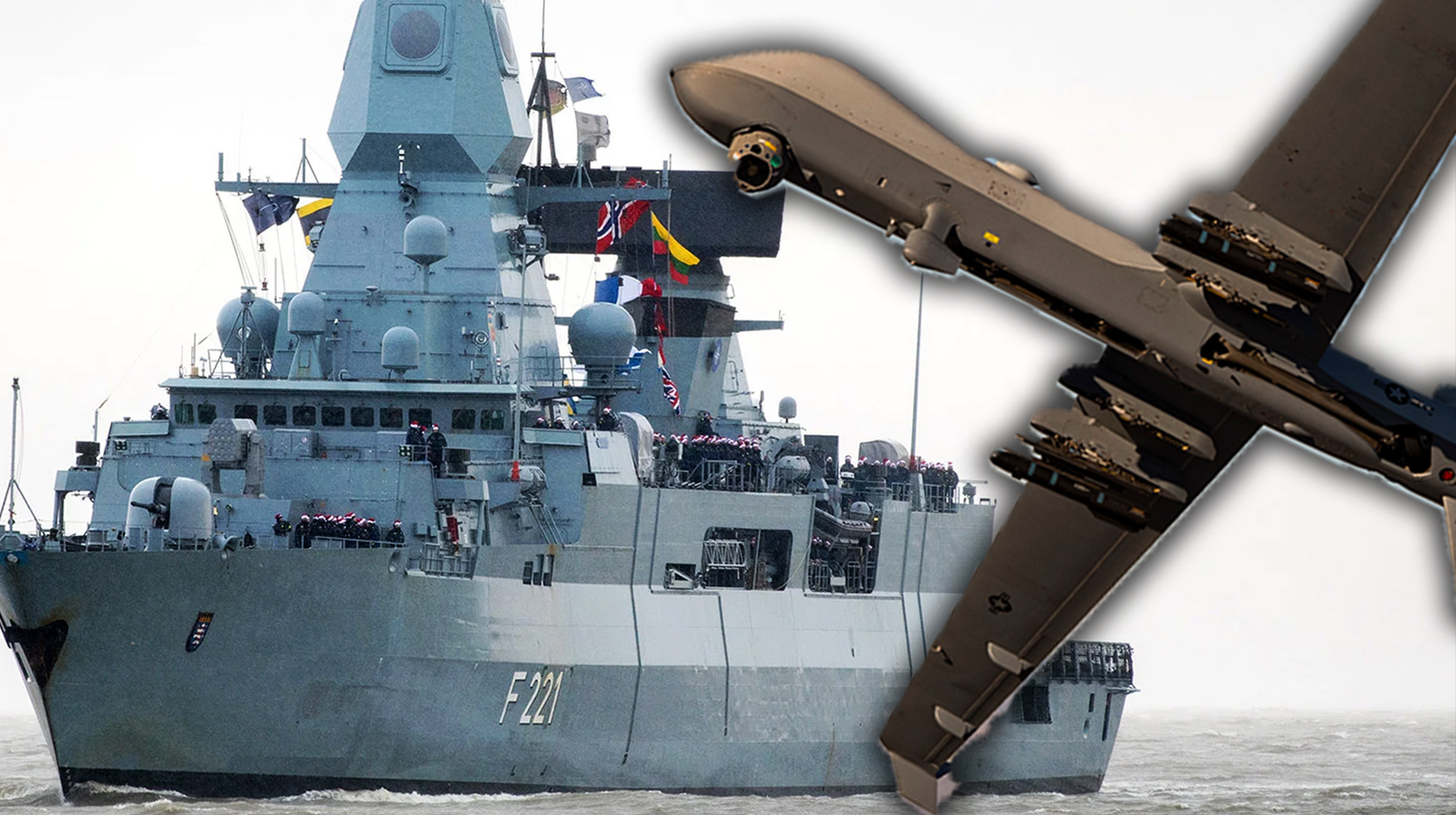

The German frigate Hessen came close to shooting down a U.S. MQ-9 Reaper over the Red Sea earlier this week, according to German media.
The ship detected the drone on its radar but was unable to identify it, a spokesperson for the German navy told Task & Purpose on Thursday.
The Hessen fired two missiles at the U.S. drone but neither missile hit the Reaper due to technical problems, the German magazine Der Spiegel reported. The Hessen was taking part in a mission to protect commercial shipping from ongoing attacks by Houthi rebels in Yemen.
A U.S. defense official confirmed on Tuesday that a German ship had targeted a U.S. Reaper over the Red Sea on Monday.
“The UAV [unmanned aerial vehicle] did not receive damage and continued its mission,” the defense official said.
U.S. Central Command is working with the European Union, or EU, along with Operation Aspides – the EU mission to protect shipping in the Red Sea – to investigate what happened and to ensure another such incident does not happen, the defense official said.
“Operation Prosperity Guardian and Operation Aspides continue to operate alongside each other as we continue our mission to ensure freedom of navigation,” the defense official said.
Subscribe to Task & Purpose today. Get the latest military news and culture in your inbox daily.
It’s been quite a while since the Germans shot at an American aircraft. The United States and the Federal Republic of Germany were close allies during the Cold War. Relations between the two countries have chilled a bit since East and West Germany reunified in 1990, but Germany and the United States have remained on friendly terms, even though some American politicians have pressed the Germans to spend more on their defense.
Since Hamas launched its Oct. 7 terror attack that sparked the ongoing war with Israel, Iranian-backed Houthis have used drones, missiles, and small boats to attack commercial shipping in the Red Sea. The Houthis are part of the so-called “Axis of Resistance,” which consists of Iranian proxies that have launched attacks across the Middle East, including against U.S. troops in Iraq and Syria, to support Hamas.
Since Dec. 18, U.S. Navy ships have shot down countless Houthi missiles and drones as part of Operation Prosperity Guardian, to protect international shipping. Separately, the U.S. and British militaries have also launched airstrikes against targets in Yemen in an attempt to prevent Houthi attacks.
“Since the first coalition strikes on Jan. 11, we assess that we’ve destroyed or degraded at this stage more than 150 missiles and launchers, including anti-ship land attack and surface-to-air missiles, plus numerous communication capabilities, UAVs, unmanned surface vessels, coastal radars, air surveillance capabilities, rotary wing aircraft, underground facilities, to include weapons storage areas and command and control buildings,” Air Force Maj. Gen. Pat Ryder, a Pentagon spokesman, told reporters on Tuesday.
But the ongoing fusillade of U.S. and British bombs and missiles has not stopped Houthi attacks on merchant ships. The M/V Rubymar, a Belize-flagged, British-owned cargo ship, was abandoned after it was struck by a Houthi missile on Feb. 18.
The ship, which is loaded with fertilizer, continues to take on water. It is also leaking oil, causing a slick that is many miles long.
“So, the Houthis are creating an environmental hazard right in their own backyard,” Deputy Pentagon Press Secretary Sabrina Singh told reporters on Feb. 22. “On top of that, as I mentioned at the podium the other day, they hit a ship that was carrying grain towards Yemen for their own citizens, for a starving population.”
The latest on Task & Purpose
- Afghanistan’s ‘Angel of Death’ is retiring from Air Force special ops
- Drill sergeant shoots first perfect score at Army marksman course
- National Guard asked to deploy to suburban Boston high school
- Space Force cancels classified military communications satellite project
- Navy commissions ship named for Medal of Honor recipient